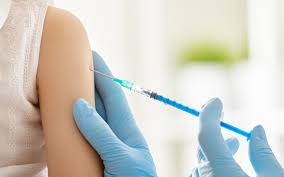Vaccinations
Vaccinations for Women
In today's world, preventing diseases through vaccination is recognized as far superior to treating them. Women should be aware of the vaccines available for various diseases and the appropriate times to receive them. Some vaccines should be taken when a woman is not pregnant, while others are safely recommended during pregnancy.
Vaccinations During Pregnancy
Tetanus Shot
- The Government of India recommends two doses of the tetanus toxoid (TT) vaccine during pregnancy to prevent neonatal tetanus. These doses should be administered after the first trimester with at least a four-week gap between them.
Tdap Vaccine
- The Tdap vaccine, given during the third trimester, provides immunity to both the mother and child against diphtheria, tetanus, and whooping cough. It may replace the second dose of the tetanus vaccine as per the National Immunization Programme (NIP). If not administered during pregnancy, it should be given immediately postpartum. Vaccination of family members (cocooning) is also recommended to protect the newborn.
Influenza Vaccine
- Routine influenza vaccination is recommended for everyone above six months of age during flu season (October - March). Pregnant women should receive the vaccine after the first trimester.
Vaccinations Before Pregnancy
Women should ideally be vaccinated against preventable diseases before becoming pregnant. If not vaccinated in childhood, consider the following:
MMR Vaccine
- Contains the rubella vaccine. All girls should receive this vaccine before planning a pregnancy. Avoid becoming pregnant until at least one month (28 days) after receiving the MMR vaccine and ideally not until immunity is confirmed by a blood test (CDC recommendation).
Varicella Vaccine
- Chickenpox during pregnancy can lead to complications. Women who have not had chickenpox or its vaccine in childhood should receive it before getting pregnant. As it is a live vaccine, avoid pregnancy for one month after vaccination.

Vaccinations for Specific Conditions
- Women with sickle cell disease or those who have had a splenectomy should receive the pneumococcal vaccine every five years and the H. influenzae and meningococcal vaccines as a single dose.
HPV Vaccine
- Prevents cervical cancer and warts. The target age for vaccination is 11–12 years for both girls and boys. Those under 15 should receive two doses six months apart. Bivalent, quadrivalent, and 9-valent vaccines are recommended for females aged 9–26 years, and quadrivalent and 9-valent vaccines are recommended for males aged 9–26 years. The 9-valent HPV vaccine, licensed by the FDA in December 2014, is highly effective in preventing certain types of cervical and other cancers but is not yet available in India.
By adhering to these vaccination guidelines, women can significantly reduce their risk of contracting preventable diseases, ensuring better health for themselves and their future children.


